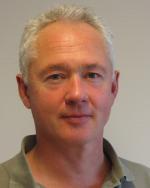International Advisory Group
The International Advisory Group (IAG) will serve as ERA-MBT’s “think-tank” group and as a reference point for all strategic initiatives undertaken by the ERA-MBT consortium. Providing strategic guidance and advice, the IAG will be involved in ERA-MBT over the life-time of the project. The diverse background and experience of the IAG members will be of great importance when providing input to activities such as developing the strategic roadmap, defining research priorities and reviewing ERA-MBT performance, in addition to broader issues associated with the implementation of ERA-MBT.
Find out more about the 11 IAG members:
|
Adrianna Ianora Research Director and Head of the Functional and Evolutionary Ecology Department |
|||
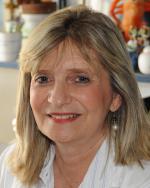 |
Professor Adrianna Ianora is Research Director and Head of the Functional and Evolutionary Ecology Department at the Stazione Zoologica Anton Dohrn, Naples (Italy). Adrianna Ianora studied at McGill University of Montreal (Canada) and was Laurea Cum Laude at the University of Naples (Italy) in 1980. Research interests include exploring the biotechnological applications of microalgal secondary metabolites as pharmaceuticals. She is member of the EUROMARINE and MARS Steering Committees; Editorial Board Member of several journals, including PloSONE and Frontiers in Marine Biotechnology; author of 100 Web of Science publications; co-Author of Marine Board-ESF Position Paper 15: “Marine Biotechnology: A New Vision and Strategy for Europe”. She participated in PHARMASEA FP7 project; 3 Italian National Industry-Driven Projects (PON01) coordinated by Novartis Vaccines & Diagnostics srl, Sanofi S.p.A and BIOGEM Scarl. She has been member of the Open University PhD Committee at the Stazione Zoologica Anton Dohrn since 2001 and has co-ordinated the ecology courses of the PhD programme since then. She has also been involved in the organization of many training courses within the EU Networks of Excellence MarBEF, EUROCEANS and Marine Genomics.
|
||
|
Alan Dobson Director of the Environmental Research Institute |
|||
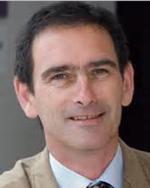 |
Professor Alan Dobson is a microbiologist and Director of the Environmental Research Institute at University College Cork (Ireland) and is a principal investigator on a range of nationally and internationally funded marine biotechnology related projects. He leads Ireland’s national marine biodiscovery research activity – the Beaufort Marine Biodiscovery project and is a partner in a wide range of EU funded projects including the FP7 projects PharmaSea, MicroB3 and other projects involving the discovery, evaluation and characterisation of marine origin biological resources for possible use in food and health applications. Professor Dobson is a frequent reviewer of marine research proposals on behalf of the EU; was an invited author of the Marine Board position paper 15 – “Marine Biotechnology: a New Vision and Strategy for Europe” and is a member of Ireland’s marine biotechnology task force, which is responsible for defining a national marine biotechnology strategy. Professor Dobson is a Member of the Royal Irish Academy.
|
||
|
Ernst Kloosterman Managing Director |
|||
|
|
Ernst Kloosterman is managing director of the Industrial Biotech Network Norway. This innovation network aims to accelerate the development of a sustainable and economically feasible industry based on Norwegian bioresources. The network facilitates multidisciplinary and cross-sectorial networking and promotes the use of biotechnology as an enabling technology. Before that, he was managing director and responsible for the establishment of the marine biotechnology and life sciences cluster ‘BioTech North’, in the Tromsø region in Northern Norway. Ernst Kloosterman is originally a chemical engineer from the University of Groningen (The Netherlands). He started his career in 1985 at the Dutch chemical company DSM where he held several management positions within R&D, new business development, technology and production in the fields of chemicals and engineering plastics until 2001.
|
||
|
Fernando de la Calle Head of Microbiology Department. R&D |
|||
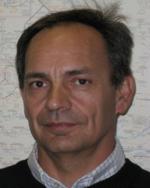 |
Dr. Fernando de la Calle is Head of the Microbiology Dept. within Drug Discovery (R&D) at PharmaMar (Spain). He received his PhD in Molecular Biology from the Universidad Autónoma de Madrid (Spain) in 1998 and his B.Sc. in Biology from Universitat de les Illes Balears (Spain) in 1986. He also completed an Executive-MBA at IDE-CESEM (Spain) in 2005. He has more than 25 years’ experience working in drug discovery from marine microorganisms, and is co-inventor of the current hemi-synthetic process used to manufacture Yondelis®, the first marine derived medicine approved in Europe for the treatment of Soft Tissue Sarcoma and Ovarian cancer. He is an expert in Applied Biotechnology and the design of biotechnology processes using marine bacteria. In addition, he is an external advisor for biotechnology issues to the Spanish Government (INCUAL), scientific contact person from PharmaMar for FP7 EU projects related to Marine Biodiversity such as MAMBA, MaCuMBA and MicroB3; and Principal Investigator in more than 10 other nationally funded projects.
|
||
|
Frank Oliver Glöckner Head of the Microbial Genomics and Bioinformatics Research Group |
|||
 |
Professor Frank Oliver Glöckner is a trained microbiologist and head of Microbial Genomics and Bioinformatics Research Group at the Max Planck Institute for Marine Microbiology in Bremen and Professor of Bioinformatics at Jacobs University Bremen (Germany). His group develops enabling technologies and products to transform the wealth of environmental sequence- and contextual (meta)data into biological knowledge. He was/is the principle investigator of a range of national (REGX, MIMAS, GFBio, de.NBI) and European funded projects like Marine Genomics Europe, MetaFunctions, MAMBA, Symbiomics, EuroMarine, BioVeL and the ESFRI project MIRRI. He coordinates the large-scale integrated “Oceans of Tomorrow” project Micro B3 (Biodiversity, Bioinformatics, Biotechnology). He was chair of the joint workshop series of the EC-US Task Force on Biotechnology and led the European Science Foundation (ESF) position paper 17 on “Addressing Marine Microbial Diversity and its role in Ecosystem Functioning and Environmental Change”. He is the elected chair of the Mediterranean Science Commission committee for Marine Microbiology and Biotechnology and member of the executive board of the “Genomic Standards Consortium”. He is part of the Scientific Advisory Boards of EMBL-EBI/ENA, PharmaSea and Tara-Oceans.
|
||
|
Fredrika Gullfot CEO
|
|||
|
Helena Vieira Invited Professor and Researcher at the Faculty of Sciences |
|||
 |
Professor Helena Vieira is a co-founder and was CEO (2005-2013) of BIOALVO SA, a Portuguese marine natural resources biotech company focusing on developing novel marine ingredients for a variety of sectors (from pharma to cosmetics, food, agricultural and industrial) and has recently started MY.SPAKOS, a personalized cosmetics enterprise. At the same time, she is doing national and international business and scientific consulting on innovation, entrepreneurship, technology transfer, marine biotech and sea economy projects. Helena Vieira holds a post-graduate in Leadership & Strategy in Pharma & Biotech, from Harvard Business School (USA) and a PhD in Biomedicine from Imperial College of London (UK). Previously, she was a researcher in the molecular and cellular biology fields, in Portugal and UK and progressed to be an Associated Professor and Scientific Coordinator of the biomedical and clinical engineering degrees at the Engineering Faculty of UCP (Portugal). Currently, she is also responsible for the supervision & teaching of Entrepreneurship, Innovation and Technology Transfer courses to MSc and PhD Students in the University of Lisbon and a Member of the European Marine Board, LIDE SEA Subcommittee and invited international expert of the Blue4Green EU Project.
|
||
|
Nathalie Moll Secretary General |
|||
 |
Nathalie Moll has spent nearly 20 years working for the biotech industry at EU and national level and has held several posts in EuropaBio, the European Association for BioIndustries, taking up the role of Secretary General in April 2010. She received the 2013 Women Innovation Technovisionaries Award, in the context of the annual international conference "Women & Technologies” as well as the 2009 Leadership and Excellence in Advancing Agbiotech and Food Issues (LEAFFI) Award for Acceptance with the Green Biotech Team in EuropaBio. She is an Honours graduate of the University of St. Andrews (Scotland) in Biochemistry and Biotechnology and has focused on improving awareness of the importance and benefits of biotechnology for society, working together with the industry, regulators and stakeholders, towards developing a more supportive legislative framework for the industry and related sectors.
|
||
|
Patrick Sorgeloos Past Director and Head of the Department of Animal Production, Laboratory of Aquaculture and Artemia Reference Center |
|||
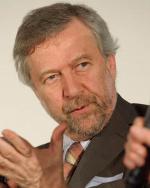 |
Professor Dr. Patrick Sorgeloos is emeritus Professor of Aquaculture at the Ghent University (Belgium) and has been involved in fish and shellfish larviculture R&D in Europe, Asia, Latin America and Africa since the mid-seventies. So far, over 250 Masters and 70 PhD alumni graduated at Ghent University in the field of aquaculture under his guidance. Dr. Sorgeloos is a strong promoter of international networking in aquaculture and was/is involved in the World Aquaculture Society (being its President in 1999-2000), the European Commission (Chairman of the Thematic Network Aquaculture – AquaTnet; member of the Advisory Group of DG Research FP7 theme 2 “Food, agriculture and biotechnology”; and Chairman of the ASEM Aquaculture Platform) and the European Aquaculture Technology & Innovation Platform (co-founder and board member). He has received honorary awards in China, Ecuador, Egypt, Greece, Thailand, USA and Vietnam.
|
||
|
Rachel Ritchie Director of Business Development |
|||
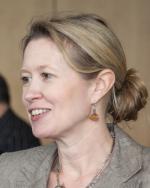 |
Dr. Rachael Ritchie is the Director of Business Development at Genome British Columbia (Canada), where she works to develop strategic partnerships to facilitate advancement of genomics within and from the lab to deliver tangible economic and social benefits. Dr. Ritchie’s involvement in marine biotechnology dates back to 1998 in Eastern Canada where she worked with government and private sector entities to bring molecular biology to bear on pressing aquaculture and fisheries issues around fish health, stock structure and environmental sustainability. From 2010-2012, Dr. Ritchie worked in the OECD’s Science and Technology Policy department to analyse policies to help bring advances in science and technology to practical application. During this time, she led the development of the OECD’s report “Marine Biotechnology: Enabling Solutions for Ocean Productivity and Sustainability”. Within Genome British Columbia, Dr. Ritchie manages a $42M CAD Fisheries & Aquaculture portfolio of projects ranging from development of genomic tools to monitor finfish and shellfish, to the development of new tools to support sablefish (Anoplopoma fimbria) broodstock development.
|
||
|
Uwe Waller Head of Aquaculture R&D Department |
|||
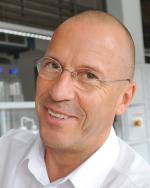 |
Professor Dr. Uwe Waller is a marine biologist leading the aquaculture research and development activity at the University of Applied Sciences in Saarbrucken (Germany). He became a member of the school of engineering after 30 years of fundamental marine research at the Institut für Meereskunde in Kiel (Germany). Today he works with engineers from different fields of technology. Professor Waller’s research is strictly interdisciplinary and focuses on knowledge transfer in marine biotechnology. His main research topic is multi-trophic aquaculture, including vertebrate and invertebrate animals, as well as plants and microalgae. Based on results from the applied science, he is developing large commercial demonstration projects. Recently, a large commercial seawater production was opened in the neighbourhood of Saarbrücken, producing fish from temperate oceans. The project is internationally observed because it proofs opportunities for future aquaculture, which is environmentally sound and sustainable. Professor Waller is reviewer of national and international aquaculture research proposals. He frequently reviews submissions to international scientific aquaculture journals. He is member of national groups dealing with future strategies for the development of aquaculture biotechnology in Germany.
|
||
|
|
|||

